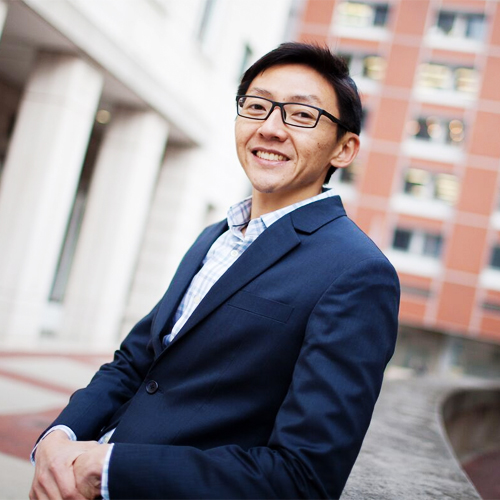Ngai Yin Yip | Advancing Membrane-based Technologies Aimed at Water-Energy Intersection
Ngai Yin Yip's research centers on the crucial intersection of water and energy sustainability
Ngai Yin Yip's research centers on pioneering membrane-based technologies, targeting the crucial intersection of water and energy sustainability.
In the area of sustainable energy, Yip is examining ways to capture and utilize waste heat from industrial processes. Waste heat is a substantial source of energy that, at present, is usually discharged to the environment and not being utilized. “If we look at the total amount of waste heat, the energy expended is an order of magnitude greater than all the other renewable energy we produce,” says Yip. And that’s where Yip sees potential. “We want to create technology that can capture that heat and turn it into electricity.”

Ngai Yin Yip Assistant Professor, Department of Earth and Environmental Engineering.
—Photo by Timothy Lee Photographers
Notes Yip, a significant portion of this waste heat is carried in low-temperature aqueous waste streams. His lab is developing a novel membrane-based technology to convert the waste heat to mechanical work and eventually, into electricity. “Hence, waste heat embedded in the water,” he says, “that would otherwise be discarded is harvested to yield energy—an emblematic illustration of the water-energy nexus.”
Yip and his research team are pursuing a patent for this new method. “What we are doing is trying to expand the range of application. This is an entirely new technology, and we’re at the very first step,” he says. “We’re looking at innovative ways to use membranes and trying to leverage their unique advantages.”
They hope to demonstrate that this model is feasible and not prohibitively expensive so that there’s potential for use in industry, in factories, and in power plants that put out waste heat. “It could even be possible for use on a smaller scale if we can scale down the process.”
Another key area of focus in Yip's lab considers an emerging movement in agriculture and wastewater management. Instead of expending enormous amounts of energy to "fix" nitrogen in the air or mine phosphorus in the ground to manufacture fertilizers, there is growing interest, explains Yip, to recover the nutrients downstream—from the wastewater that runs in our sewers. There are industrial processes to capture the nutrients, but the prohibitively high-energy requirement is a critical barrier that needs to be overcome. Here, Yip proposes that the adroit use of membrane technologies can circumvent these obstacles and mine resources effectively from what is typically considered a “waste” stream.
“By selecting the appropriate technology from a suite of innovative membrane processes and combining them synergistically,” says Yip, “the nutrients in wastewater can be recovered efficiently, and water can even be simultaneously reclaimed for reuse.”
The implications, Yip stresses, are enormous—and they’re what drove his interest in the field.
“When we look at the grand challenges that the world is facing right now, they all tie back to the issues of energy and water.”
Noting that access to clean water and to energy can give people worldwide more time and ability to focus on their work and improve their communities, Yip says finding ways to generate solutions in both the developing world and in other settings can have global impacts.
“If we can really get a handle on water and energy and really tackle them, it’s much easier for us to solve the rest of the problems, including poor sanitation and hygiene,” he adds. “My focus is always on the big-picture challenge.”
Yip joined the Engineering School in July of 2015 after completing his PhD at the Department of Chemical and Environmental Engineering at Yale University. He is a member of the American Chemical Society and the Association of Environmental Engineering and Science Professors, and a reviewer for publications including Environmental Science and Technology, Water Research and ES&T Letters. His dissertation on membrane technologies for the sustainable production of energy and water won the CH2M Hill/AEESP Outstanding Doctoral Dissertation Award and the Henry Prentiss Becton Graduate Prize in 2015.
BE, Nanyang Technological University, Singapore, 2004; MS, Yale University, 2011; MPhil, Yale University, 2011; PhD, Yale University, 2014.
